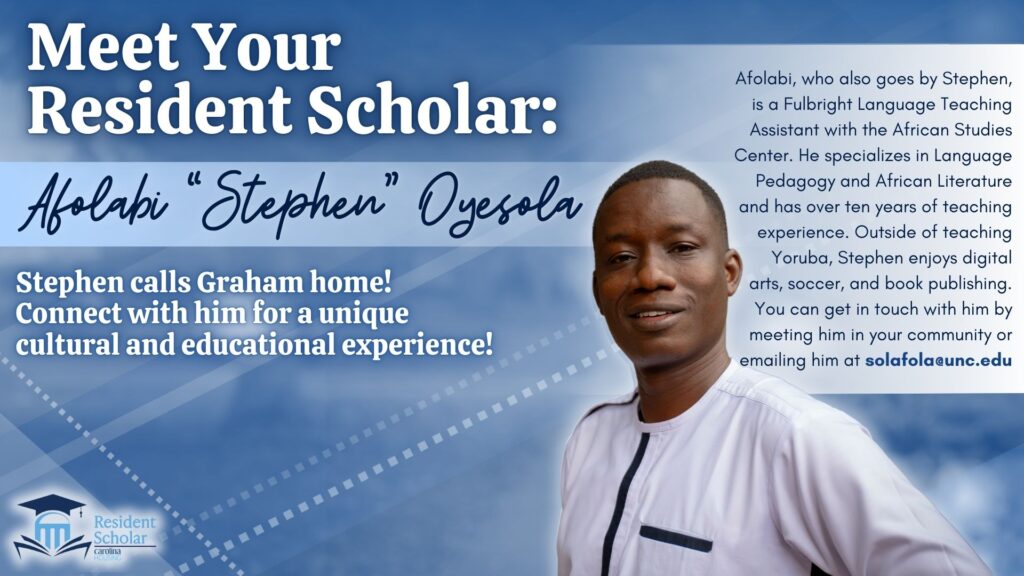The purpose of the Resident Scholars program is to increase the number of meaningful interactions students have with faculty or other scholars in the residential setting. Resident Scholars live among students in the residence halls and facilitate learning opportunities that foster a stronger connection and sense of belonging within the Carolina Community. Resident Scholars collaborate with students and staff in their assigned residential community to provide formal and informal programming on a variety of topics based on the Resident Scholars’ knowledge and experience. This program is one of many ways that Carolina Housing maintains its commitment to providing students with chances to enhance their overall university experience. The program has been running since fall 2011.
Resident Scholars must be a member of the University community or a guest of a university department. They must also have earned an advanced degree or be in process of earning advanced degree at UNC Chapel Hill. Resident Scholars should be dedicated to working with diverse student populations and understand the value of learning outside of the classroom. Becoming a Resident Scholar is based on the availability of space within the residence halls.
Resident Scholars spend 20 hours per month interacting with their assigned community. Those interactions can include but are not limited to:
Carolina Housing provides each Resident Scholar an on-campus apartment with internet and basic utilities (water, electric). Space availability determines specifics of whether the apartment has 1 or 2 bedrooms or if it includes a washer and dryer in the unit. Resident Scholars are responsible for working with their academic department to secure a campus parking permit.
We are fully staffed with Resident Scholars for the 2024-2025 academic year and are not currently accepting applications. We ask current Resident Scholars to indicate by the spring semester if they are interested in returning to the position for the following year. Vacancies are most likely to be posted in mid to late spring for the following academic year.
Leyla is the Turkish Fulbright Language Teaching Assistant (FLTA), who works with the Center for Slavic, Eurasian, and East European Studies. She will be teaching Turkish and has a background in sociolinguistics with a focus on heritage language transmission. Leyla is passionate about learning new languages, playing Bağlama, and hiking.

Afolabi, who also goes by Stephen, is a Fulbright Language Teaching Assistant with the African Studies Center. He specializes in Language Pedagogy and African Literature and has over ten years of teaching experience. Outside of teaching Yoruba, Afolabi enjoys digital arts, soccer, and book publishing.

Vaibhavi is a Fulbright Language Teaching Assistant at the Carolina Asia Center. She is a PhD candidate in English Literature, with research focusing on culinary narratives as a form of cultural expression and identity. Vaibhavi enjoys playing the ukulele, cooking, and practicing yoga.

Rojano is an MFA Grad student and the Resident Scholar at Morrison Art Studio, partnering with the Department of Art and Art History. Her work explores themes of migration and borders using various materials. Rojano also enjoys writing short stories, cooking, and practicing kickboxing.

Email: [email protected]
Phone: 919-962-5401